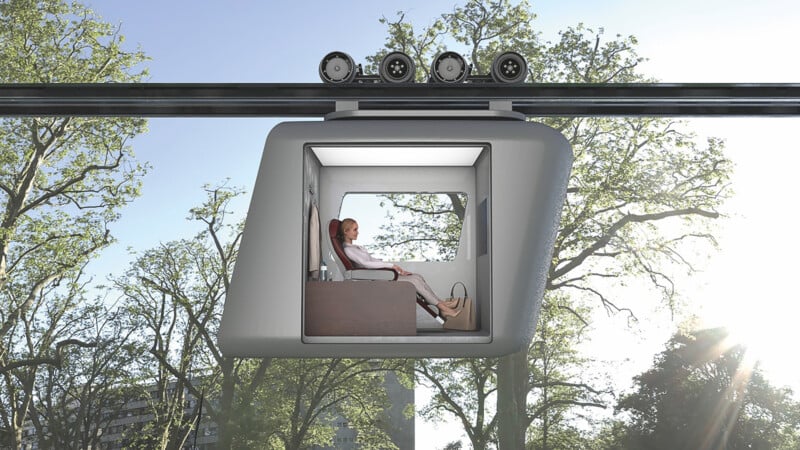High Visions

- The monorail as a concept for inner-city transportation
- Photos: Ottobahn
A Munich-based startup is targeting inner-city mobility with a smart suspension railway.
The Wuppertal aerial tramway opened on 1 March 1901 but found no imitators in all of Germany. Today however, gondolas sailing above the city’s streets are once again the vision for inner-city mobility. And though it’s traditional cablecar and lift manufacturers Leitner and Doppelmayr who have dominated this field, smaller companies, like start-ups Upbus and Ottobahn, have begun to attract attention with innovative ideas.
Founded in 2019, Munich-based mobility company Ottobahn has presented a rail concept for its home city for the first time, with technical support from the Fraunhofer Institute. Their plan is an environmentally friendly rail system running 5–10 m above the existing city street network. The cabs are designed to carry up to four people or a load of 1.3 tonnes – he first prototype is already doing test rounds in the start-up’s 280 sq m office.
Ottobahn founder Marc Schindler sees the advantage over traditional trams and cable cars in the flexible and efficient technology. An extensive rail network is envisaged to bring passengers to their destination, travelling at up to 60 km/h without intermediate stops. Intelligent algorithms will coordinate thousands of gondolas simultaneously in real time, meaning each can travel freely even in case of breakdowns, and do not require fixed stopping points. The expensive construction of stops and large stations would thus be eliminated, and waiting times reduced.
The gondola is propelled by two small electric motors and lowered to the ground via steel cables for passengers to get in and out. According to Ottobahn, each cabin has one tenth the energy consumption of an electric car. The new system is thus not only more energy-efficient in the long term, but also considerably more cost-effective than current local transport
options. The user books a ride with a few taps via an app.
The floating rail network is not only proposed as a replacement for existing public transport. Through purchasable gondolas, with equipment adaptable to buyers’ wishes, Schindler says the system could replace much private car traffic in the future. Ambulances and entertainment and delivery services can also be factored in. Finally, eventual expansion could whisk passengers cheaply, reliably and safely off to neighbouring cities at up to 250 km/h.














